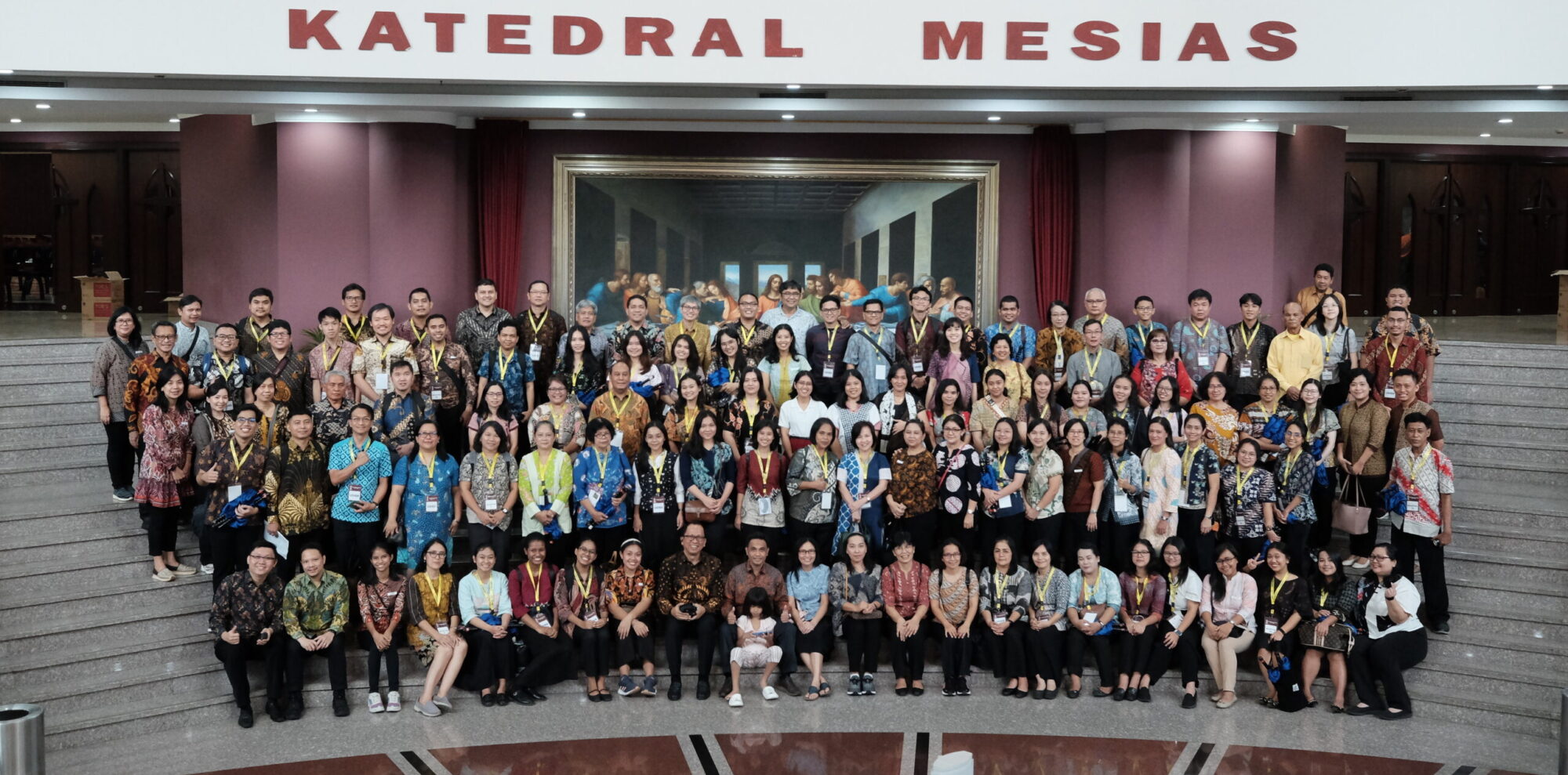PA Khusus GRII Cikarang
Ucapan Rasul Paulus yang Sulit dalam Surat Roma
Selasa, 30 Juni 2020
Vik. Tommy Suryadi
Referensi utama:
- buku “Ucapan Paulus yang Sulit” karya Manfred T. Brauch
- com
- NIV Study Bible
- NICNT Douglas Moo
Tema: Kegenapan Hukum Taurat (Roma 10:4)
Sebab Kristus adalah kegenapan hukum Taurat, sehingga kebenaran diperoleh tiap-tiap orang yang percaya. (TB)
For Christ is the end of the law for righteousness to everyone who believes. (ESV)
For Christ is the end of the law for righteousness to every one that believeth. (KJV)
Pertanyaan:
- Apa yang dimaksud ketika dikatakan bahwa Kristus menggenapkan Hukum Taurat dalam Roma 10:4?
- Apakah ini berarti kita tidak memerlukan Hukum Taurat lagi?
- Apakah Reformed setuju dengan antinomianisme?
Kita harus membaca Roma 10:1-4 untuk mengerti konteksnya
Kegenapan/end – telos
- 33x muncul dalam Perjanjian Baru.
- Strong, NASEC: an end, a toll.
- HELPS: consummation, end, purpose.
- Thayer: end, toll, custom (tax).
Matius 5:17
Janganlah kamu menyangka, bahwa Aku datang untuk meniadakan hukum Taurat atau kitab para nabi. Aku datang bukan untuk meniadakannya, melainkan untuk menggenapinya. (TB)
Do not think that I have come to abolish the Law or the Prophets; I have not come to abolish them but to fulfill them. (ESV)
Menggenapi/fulfill – pleroo
- Strong, NASEC: to make full, to complete.
- HELPS: be full, fill to individual capacity, i.e. to the extent it is “meet” (appropriate).
- Thayer: to make full, to fill, to fill up, to render full, i. e. to complete.
- Strong EC: accomplish, complete, fulfil.
Telos vs pleroo
- Dua kata ini berbeda artinya.
- Namun LAI (TB) menerjemahkan kedua kata ini sebagai “genap” dalam Matius 5:17 dan Roma 10:4.
- Lebih tepat Roma 10:4a berbunyi: “Sebab Kristus adalah tujuan (akhir) Hukum Taurat”. Apa maksudnya?
Tiga fungsi hukum Taurat (thirdmill.org)
- Pedagogical use: menyatakan kebenaran sempurna Tuhan dan keberdosaan kita.
- Civil use: menahan/ membatasi/ mengendalikan kejahatan dengan hukuman.
- Moral/Normative use: panduan hidup.
John Calvin menulis tentang telos dalam Roma 10:4
the law had been given for this end, — to lead us as by the hand to another righteousness: nay, whatever the law teaches, whatever it commands, whatever it promises, has always a reference to Christ as its main object; and hence all its parts ought to be applied to him. But this cannot be done, except we, being stripped of all righteousness, and confounded with the knowledge of our sin, seek gratuitous righteousness from him alone.
NIVSB Roma 10:4
- Telos can mean either (1) termination or (2) goal or fulfilment, it seems best here to understand it in the latter sense.
- Christ is the fulfilment of the law in the sense that he brought it to completion by obeying perfectly its demands and by fulfilling its types and prophecies.
- Christians are no longer ‘under law’ (6:14) since Christ has freed them from its condemnation, but the law still plays a role in their lives.
- They are liberated by the Holy Spirit to fulfil its moral demands (see 8:4).
Manfred T. Brauch
- Kata kegenapan (telos) dapat menunjukkan ‘tujuan’, ‘hasil’, yang kita tuju, atau ‘akhir’, ‘pemberhentian’. Banyak penafsir merasa yakin bahwa kedua arti tersebut ada di dalam teks kita. Bagi Paulus, Hukum Taurat adalah ‘penuntun bagi kita sampai Kristus datang’ (Galatia 3:24). Fungsinya yang sementara sekarang telah telah terpenuhi; dan karena itu Kristus juga merupakan akhir kegenapan hukum Taurat.
- [Paulus] menggambarkan keyakinan bahwa hukum Musa telah selesai dan dibatalkan di dalam Kristus.
- [Kristus] tidak menghapuskan kehendak Allah yang diungkapkan dalam hukum Taurat. Melainkan kedatangan-Nya menandakan akhir dari Hukum Taurat sehubungan dengan dicapainya kebenaran (yaitu hubungan yang benar dengan Allah).
NICNT
- Paul is implying that Christ is:
- the “end” of the law (he brings its era to a close)
- and its “goal” (he is what the law anticipated and pointed toward).
- [Paul] is picturing the Mosaic law as the center of an epoch in God’s dealings with human beings that has now come to an end. The believer’s relationship to God is mediated in and through Christ, and the Mosaic law is no longer basic to that relationship.
- But Paul is not saying that Christ has ended all ‘law’; the believer remains bound to God’s law as it now is mediated in and through Christ (see Gal. 6:2; 1 Cor. 9:19-21).
- Nor is he saying that the Mosaic law is no longer part of God’s revelation or of no more use to the believer. The Mosaic law, like all of Scripture, is ‘profitable’ for the believer (2 Tim. 3:16) and must continue to be read, pondered, and responded to by the faithful believer.
- Our relationship to God is now found in Christ, not through the law; and our day-to-day behavior is to be guided primarily by the teaching of Christ and his apostles rather than by the law.
- On the other hand, Jesus and Paul also caution us against severing Christ from the law. For he is its fulfilment and consummation and he cannot be understood or appreciated unless he is seen in light of the preparatory period of which the law was the center.
Catatan penting:
- Ajaran Tuhan Yesus dan para rasul tidak melawan/berkontradiksi dengan Hukum Taurat (dengan penafsiran yang benar).
- Misalnya: baik Perjanjian Lama maupun Baru sama-sama melihat perzinahan dan mencuri itu sebagai dosa.
- PA Khusus kali ini tidak membahas kontinuitas/diskontinuitas Perjanjian Lama dan Perjanjian Baru.
KESIMPULAN
- Kebenaran kita tidak sempurna sehingga kita tidak mungkin menjadi benar di hadapan Allah.
- Tetapi kebenaran Kristus, yang kedatangan-Nya telah ‘mengakhiri’ dan ‘ditunjuk’ oleh Hukum Taurat, diperhitungkan kepada kita yang percaya, sehingga kita dibenarkan.
- ‘Menuntun kepada Kristus’ bukanlah satu-satunya fungsi Hukum Taurat.
- Perjanjian Baru tidak mengajarkan antinomianisme. Contoh: Efesus 4:28.
- Orang yang mencuri, janganlah ia mencuri lagi, tetapi baiklah ia bekerja keras dan melakukan pekerjaan yang baik dengan tangannya sendiri, supaya ia dapat membagikan sesuatu kepada orang yang berkekurangan.

